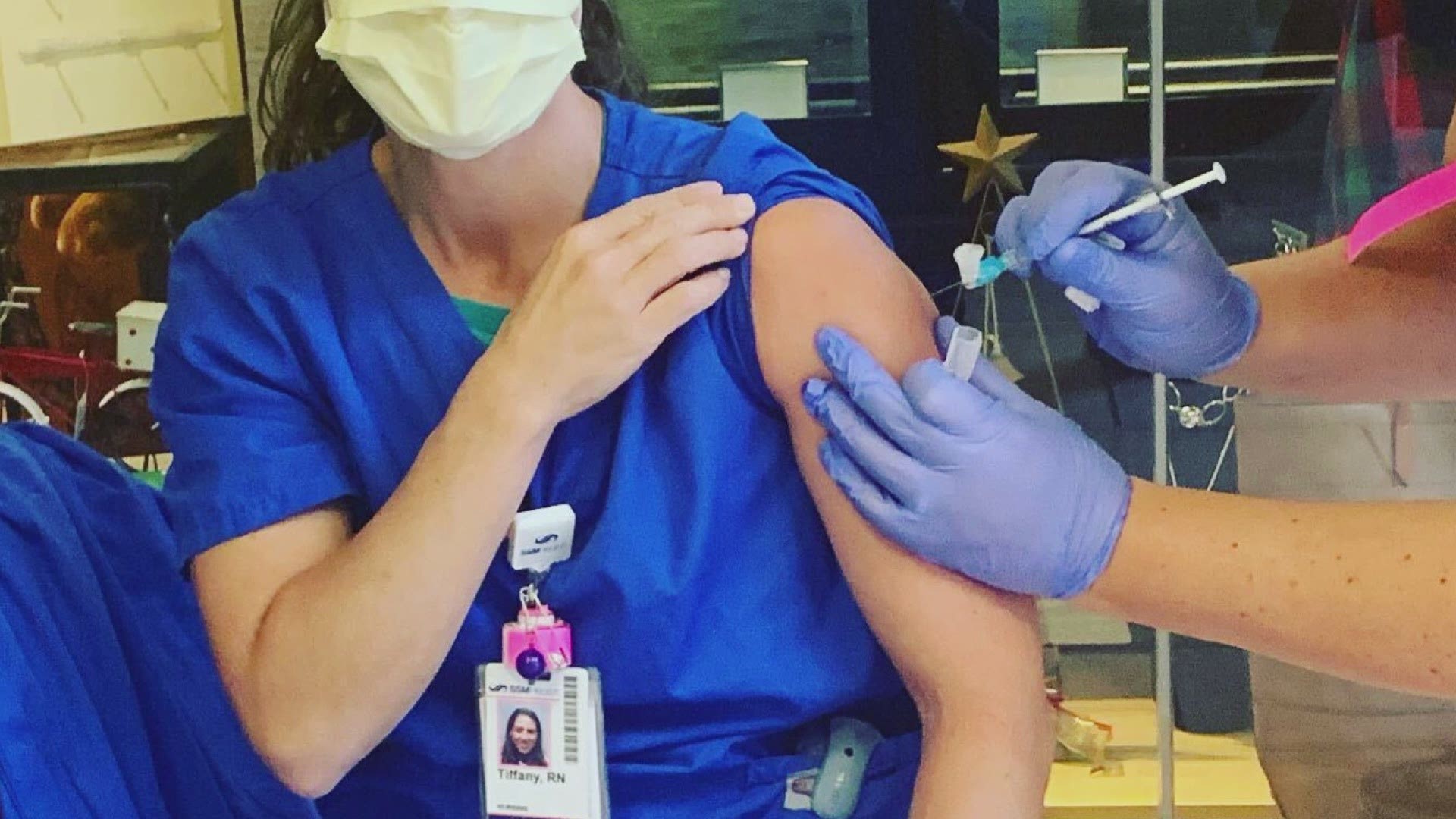ST. LOUIS — With nothing worse than an achy arm following her first dose of the Pfizer vaccine, SSM St. Mary's Hospital labor and delivery nurse Tiffany Ayulo was ready for round two.
“Actually my arm was not nearly as sore as the first time, but the other side effects were-- they were something else," she said. "I expected to feel sick, I expected to have a headache and to possibly run a fever, and I did."
“We had been warned that the second dose was when people typically experience symptoms or side effects,” she said--this based on the phase 3 trial studies indicating people more often feel side effects after their second doses of either vaccine.
"I kept kind of going between being freezing cold and then being really hot, and that's just normal with a fever. I felt pretty crummy when I got up this morning. I did end up taking some naproxen last night to help with the fever," she said.
But by just about 24 hours after her second shot?
“I feel pretty normal, actually,” said Ayulo. “So it kind of came and came quickly and then went away quickly as well.”
The CDC lists soreness and swelling in the injected arm, as well as fever, chills, tiredness, and headache as common side effects of the COVID-19 vaccine, describing the responses as "normal signs that your body is building protection.” Those responses should go away within a few days.
“Those things are to be expected. And what is happening is your immune system is responding. It sees the the bad guy. It's making the good guys,” said Dr. Patsy Stinchfield with the National Foundation for Infectious Diseases.
The CDC recommends, unless your doctor says otherwise, to get the second dose that's required with both Pfizer and Moderna shots, even if you experienced these side effects following the first dose.
“And actually, when it happens, sometimes people feel relieved, like there's something underway that's going to protect them,” said Dr. Stinchfield. “It's a small one to two day sense of illness. It is usually lasts about a day, and it is far, far, far better than having COVID diease.”
Ayulo says her vaccinated colleagues have felt similar responses—if any at all.
“I really think that it's important for people to not be afraid of getting the vaccine and then also for if they do get the vaccine, should not be afraid of kind of the immune response that they're having,” she said.
Now that the side effects have faded—Ayulo says she feels hope.
“It's pretty exciting. I do think that, you know, it feels like there's a long way to go with getting everybody else on board and taking care of our community as a whole. And, you know, that still is weighing heavily. But certainly for myself, I'm very excited.”

